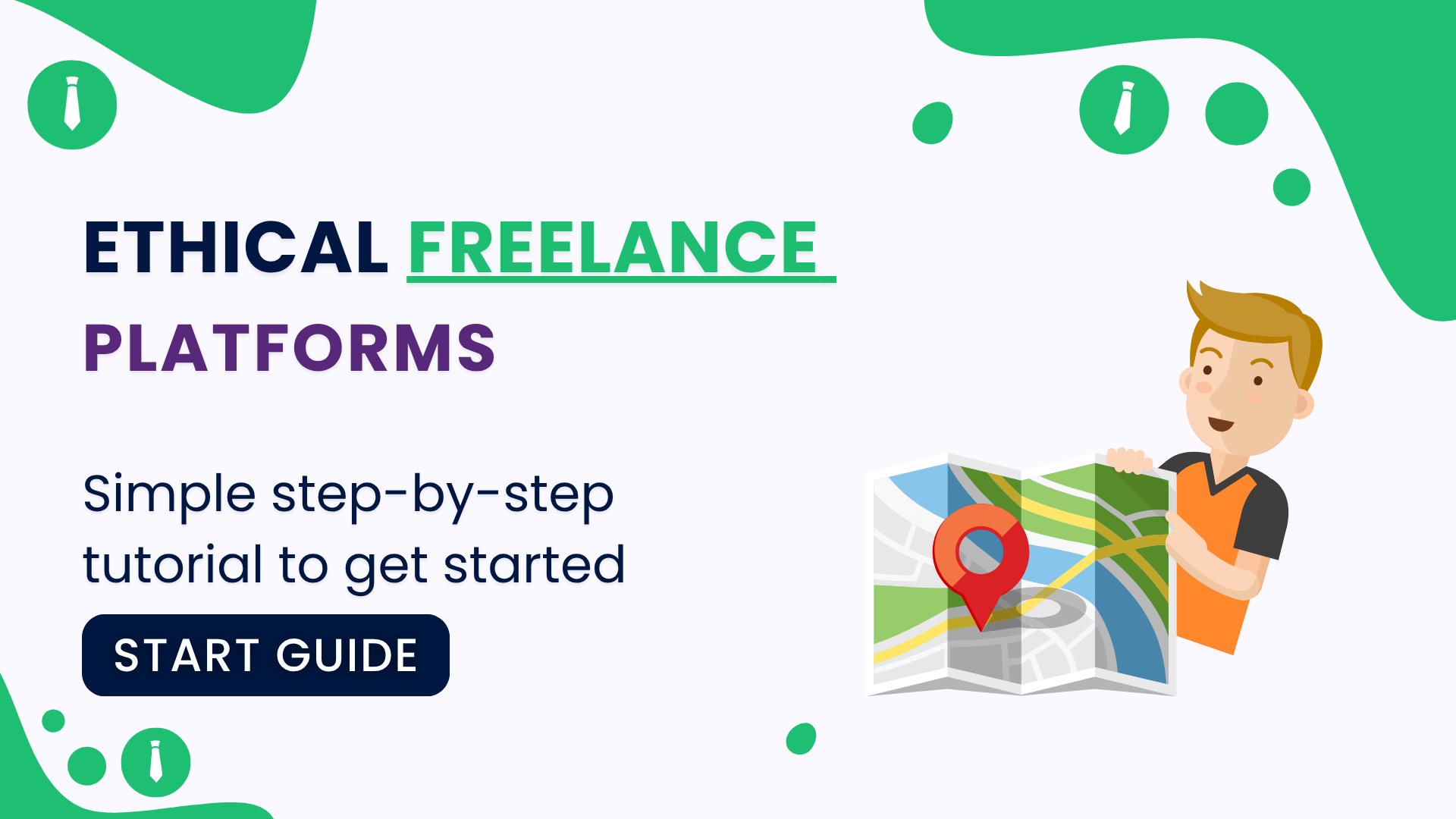Introduction: Why Ethics Matter in Freelancing Today
The freelance economy is booming, but so are concerns about fairness, transparency, and platform responsibility. As millions of professionals shift to gig work, the question isn’t just “where can I find clients?”—it’s “which platforms treat me and my work with respect?” This is where ethical freelance platforms step in, offering an alternative to the transactional, sometimes exploitative environment many freelancers know too well.
In this blog, we explore what makes a freelance platform ethical, why it matters in 2025, and how platforms like Eisqa are setting new standards. We’ll also discuss where popular platforms like Upwork and Fiverr stand in this evolving conversation.
Table of Contents
The Rise of Ethical Freelance Platforms
Freelancers are waking up to the reality that not all platforms are created equal. An ethical freelance platform goes beyond connecting clients and freelancers—it champions fair fees, protects intellectual property, supports dispute resolution, and promotes human-first policies.
This trend is driven by:
- Increased awareness of exploitative practices
- Freelancers demanding transparency and control
- Buyers seeking trustworthy professionals without exploitation
- The rise of value-based marketplaces focused on community over profits
What Defines an Ethical Freelance Platform?
To be considered ethical, a freelance platform should demonstrate:
- Fair Commission Structure Platforms that take 20-30% of every payment leave freelancers with little to reinvest in their craft. Ethical platforms often operate on 5–10% handling fees or flat rates.
- Transparent Policies Clear terms of service, fee structures, and dispute mechanisms should be visible and accessible—not buried in legal jargon.
- Respect for Intellectual Property Freelancers retain rights to their creations until payment is made. Ethical platforms safeguard this principle.
- Dispute Resolution That Works A responsive, neutral, and fair support team is key. Too many freelancers have seen cases mishandled or ignored on mainstream platforms.
- Human-Centered Algorithms Ethical platforms don’t let bots decide your worth. They prioritize people over predictive ranking scores.
- Inclusive Community Practices From onboarding to support, ethical platforms make space for global talent, emerging artists, and underrepresented voices.
Upwork and Fiverr: Where Do They Stand?
Let’s be honest—Upwork and Fiverr revolutionized freelancing. But today, many freelancers see them as double-edged swords.
Upwork: Known for its polished interface and client base, Upwork charges freelancers a sliding commission up to 20% and has been criticized for over-moderation and account bans with minimal explanation. While it has robust systems in place, many freelancers feel disposable.
Fiverr: With its gig-based model, Fiverr made freelancing accessible—but at a cost. Its flat 20% commission, aggressive upselling culture, and algorithm-centric visibility leave many high-quality freelancers hidden unless they play the platform game.
That said, both platforms have added dispute support and seller protections in recent years. Still, they lack the community-first mindset ethical platforms aim for.
Red Flags: How to Spot Unethical Platforms
If you’re searching for a new platform, beware of:
- High commissions with no added value
- Unclear fee structures or sudden deductions
- No real dispute support—just automated responses
- Ownership claims on your work
- Manipulative rating systems
- Penalizing freelancers for client mistakes
Eisqa: A Freelance Platform Built on Ethics
Eisqa (Empowering Individuals Skilled Qualified Artists) was born from a simple truth: freelancers deserve better.
Unlike mainstream platforms, Eisqa puts freelancers and buyers on equal footing. It charges only a 5% handling fee, offers transparent project terms, and ensures that both sides have access to fair mediation when needed. More than a marketplace, it’s a movement.
Why Buyers Care About Ethical Platforms Too
It’s not just freelancers who win—buyers benefit, too. Ethical platforms:
- Attract serious, high-quality talent
- Reduce the risk of ghosting, unfinished work, or mistrust
- Improve project success rates by creating balanced, respectful environments
Buyers increasingly prefer working with platforms that don’t exploit freelancers because it aligns with their values—and results in better outcomes.
The Future of Freelancing Is Human-First
Ethics are no longer optional. The future of freelancing belongs to platforms that:
- Prioritize human relationships
- Make decisions transparently
- Invest in freelancer well-being and growth
In a world dominated by algorithms and rapid automation, freelancers are seeking platforms that see them as people—not just profiles.
Why Ethical Freelance Platforms Are Gaining Momentum
In 2025, more professionals are making intentional choices about where they work—and who they work with. Ethical freelance platforms are quickly becoming the preferred choice for both seasoned freelancers and conscious buyers. These platforms don’t just offer jobs; they offer a sense of trust, transparency, and shared values. By choosing ethical freelance platforms, users are actively supporting a more balanced and humane digital work environment—one that prioritizes people over profits.
Conclusion: Choose Platforms That Choose You
As the freelance industry matures, freelancers and buyers alike are looking for more than just functionality. They want fairness, clarity, and community.
Ethical freelance platforms are filling that gap. Whether you’re a buyer or a freelancer, it’s time to ask: is the platform I’m using helping me grow—or holding me back?
Eisqa invites you to work smarter, not just harder. It’s not just another platform. It’s a promise.


Leave your comment